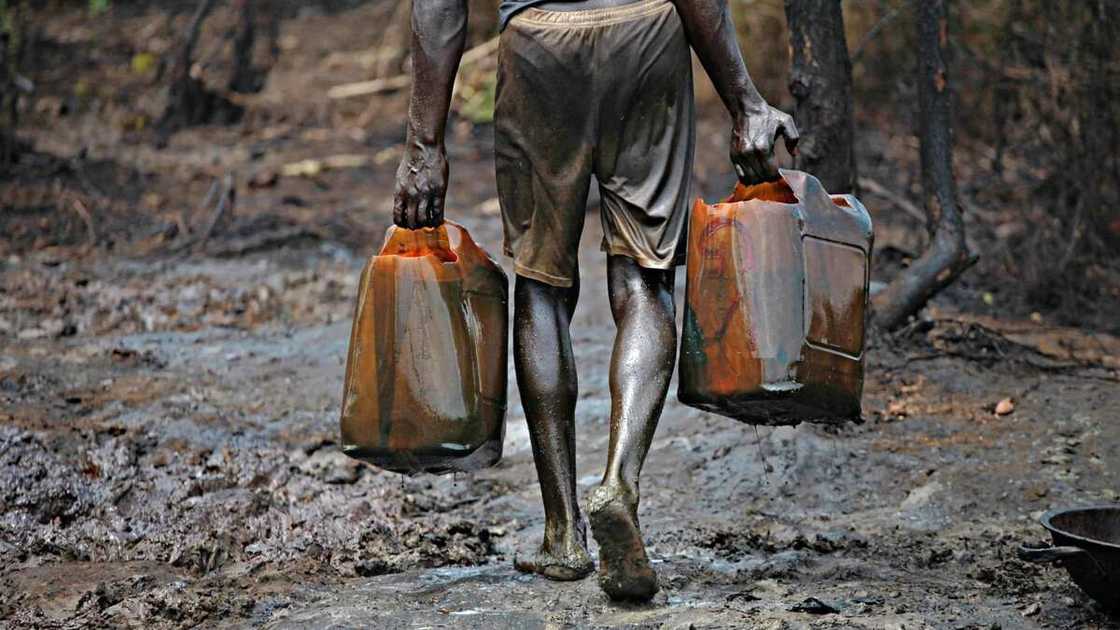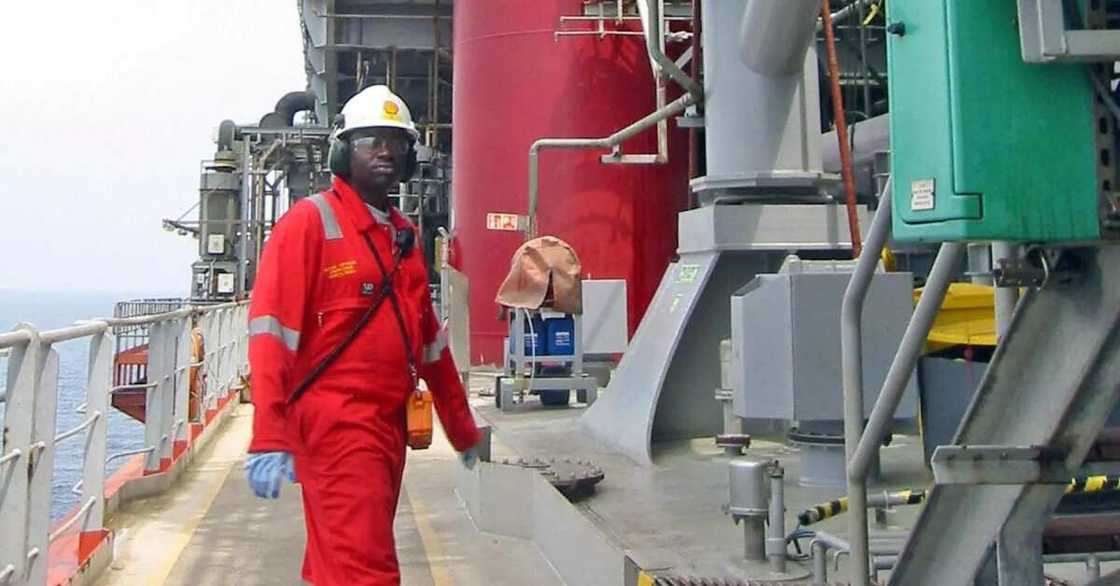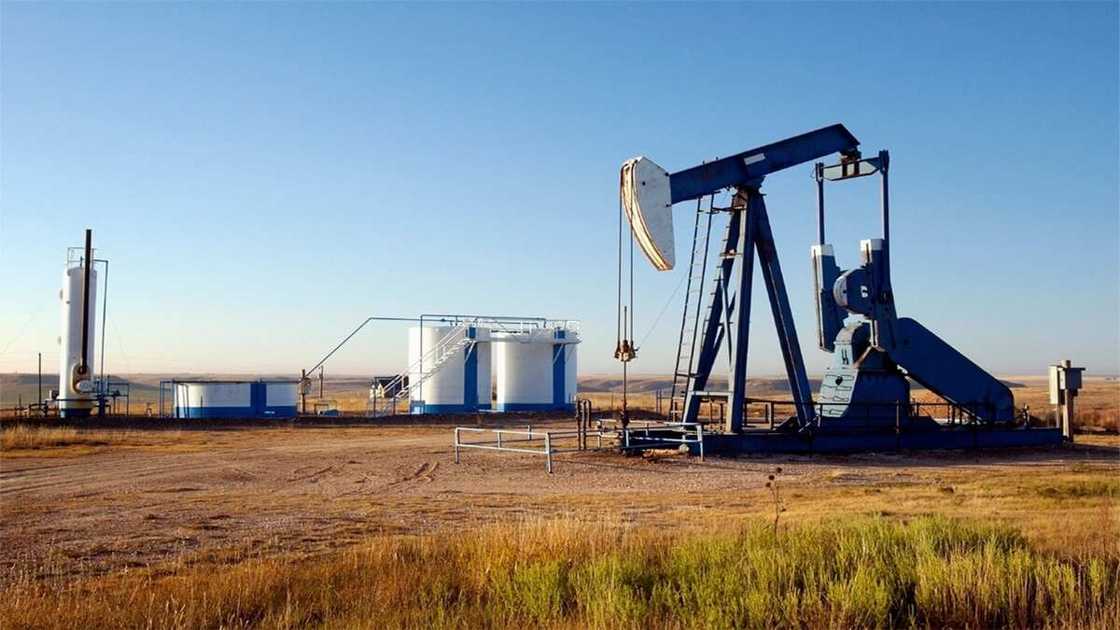Overview of the Nigerian Oil and Gas Industry: 10 Sad Facts
Oil was first discovered in 1956 in Oloibiri (Niger Delta) by Shell-BP. In 1958, the first oil stream produced 5,100 barrels per day. In 1971, Nigeria joined The Organization of Petroleum Exporting States (OPEC), while The NNPC (The Nigerian National Petroleum Company) was created in April 1977. The NNPC is a body that is controlled by the government to help regulate the petroleum distribution and coordinate the activities of the Nigeria Oil and Gas Industry.

Even though Nigeria produces up to 3 million barrels per day, the story has not been all merry and sweet. In fact, the story is not attractive. You would think with this large amount of production (Nigeria is the 8th largest producer of Oil), Nigerians should not experience some of the hardships (Poor Economy, Fuel Scarcity and many others too numerous to mention) they are experiencing now. Here are 10 sad facts, an overview of the Nigerian oil and gas industry:

READ ALSO: Department of Petroleum Resources Nigeria recruitment 2017 requirements
- Oil Thieves steal about 150,000 barrels of oil a day from Shell and other companies. The youths and the unemployed are often accused but the efficiency and accuracy of the thefts are said to exceed their ability.
- Nigeria Oil Production has killed over 2000 people from fire outbreaks to diseased water caused by oil spillage. This spillage is allegedly up to 540 million gallons and it may cost 100,000,000 dollars to clean up.
- The Oloibiri community (This includes Otuigidi and Otuabagi) is not a beautiful place, instead, it is made up of rusty old pipes and weed covered grounds. Judging from the boom the discovery of Nigeria oil made, Oloibiri would have been a commercial city or at least a commercial town. The reverse is the case as the town has long been abandoned since there was no more oil to be drilled. Shell-BP is to be blamed. To cut the long story short, Oloibiri lacks basic amenities still.
- A Federal oil and gas museum was proposed by the then President Shehu Shagari (He was president from 1979-1983). The foundation for this historical site was laid in 2001 by the then President Olusegun Obasanjo. In 2012, Petroleum Technology Development Fund (PTDF), allocated the contract to 7 Oil and Gas companies with a budget of N33.949 Billion. The museum also includes a research center. At this moment the Museum is still under construction.
- The pollution caused by oil exploration has rendered the environment and community useless, Marine life has been killed, so people can’t fish (Fishing used to be a very important part of the community), The soil is also polluted, so farming is not even an option, the oil spillage has also rendered the water system unpotable. How then is the community able to survive?
- Due to a large amount of income (60%-70%) the Nigeria Oil and Gas industry bring the Country, other sources of income have not been developed, so there is no diversity- just oil and more oil.
- Nigeria Oil and Gas. The gas is usually ignored and forgotten, even though there is the NLNG Limited (Nigeria Liquefied Natural Gas), which helps to manage the Nigeria gas resources. In 2014, NLNG paid up to N200 billion in Company Tax to the Nigeria government. The Nigeria Gas industry contributes 4% to the County’s GDP.
- In 1993, after protesting the laying of a new pipeline by Shell, the mobile police attacked more than 25 villages, more than 2000 Ogoni people were killed, leaving 80,000 people displaced.
- The Ogoni Nine: They were a group of activists said to be part of an organization called MOSOP ( Movement for the survival of the Ogoni People), includes Ken Saro Wiwa, a popular author and playwright, Nordu Eawo, Felix Nuate, Saturday Dobee, John Kpuine, Baribor Bera, Paul Levera, Daniel Gbooko and Barinem Kiobel,. They were executed by hanging in 1995. MOSOP was created to campaign for Socioeconomic and environmental justice for the Niger Delta People.
- Militants and Kidnapping of Foreign Officials and Workers: Since October 2011, the Movement for the Emancipation of the Niger Delta (MEND) has kidnapped 33 Sailors, killed 4 workers and taken over 12 ships. Even though the Nigerian Navy has been able to control the attacks, they still continue to occur. More than 200 foreigners have been kidnapped since 2006, even though most of them were released unharmed.

In 2009, The Presidential Amnesty Program was created by the Yar’dua administration to reform and rehabilitate Militants. Over 30,000 people signed up for the Amnesty program. The agreement was for them to surrender their weapons like guns, grenade, gunboats and others in exchange for money or contracts. This program proved to be a success, as there was a drop in violence and kidnappings and daily barrels of oil increased.
The Buhari administration did not support this amnesty program saying it encouraged corruptio. This lead to a general discontent. In 2016 The Niger Delta Avengers (NDA) and Niger Delta Greenland Justice Mandate claimed some attacks in Delta and Rivers States.
READ ALSO: When was DPR established in Nigeria?
Source: Legit.ng




